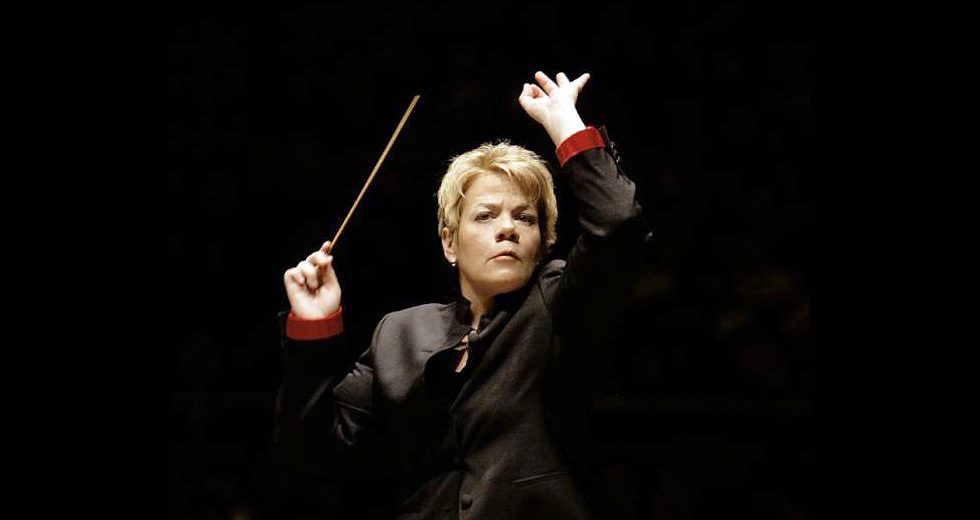
For more than 30 years, Marin Alsop has championed the music of composer-conductor Leonard Bernstein, whose centennial is being observed worldwide this year. In her current roles as music director of the Baltimore Symphony Orchestra and principal conductor of the São Paulo State Symphony Orchestra in Brazil, Alsop has followed Bernstein’s beat as an articulate spokeswoman and innovative advocate for classical music.
So when the Ravinia Festival asked Alsop to serve as artistic curator of its multi-season Bernstein celebration, she quickly agreed. “He was not only a great conductor and a great composer,” Alsop said of her former mentor, with whom she studied in the late ’80s. “He was also a great thinker. He was a great humanist. He was a great agitator. He was a great TV star. How do you try to capture that, not just the one dimension that people know about Bernstein, but the broad legacy that he left and how he transformed not just classical music but certainly musical theater and education in many ways? I think he transformed our idea of what the maestro as a citizen of the world could be.”
Working with Welz Kauffman, Ravinia’s president and CEO, Alsop has programmed six concerts featuring the Chicago Symphony Orchestra between July 12 and Aug. 19 in Bernstein’s works, including his Serenade (July 12, with Joshua Bell as soloist), the rarely performed Mass (July 28) and Symphony No. 1 (Aug. 19).
It is no surprise that thousands of events globally are scheduled this year in tribute to Bernstein, whose legacy seems to grow with each passing year since his death in 1990. In a 2011 poll of 100 top maestros by BBC Music Magazine, he was named the second-greatest conductor ever — a ranking that would alone assure him immortality. But his prowess on the podium was only part of what made him such an extraordinary figure — “a kind of miracle man,” in Kauffman’s words.
The challenge for him and Alsop was getting a handle on his wide-ranging accomplishments and conveying them in a concise, cogent way to Ravinia attendees. “I’m running around the world doing all of these Bernstein celebrations, but this will be unique because we can really focus in one place during a rather condensed period of time,” said Alsop, whose box set of complete Bernstein recordings on the Naxos label was released earlier this year. “We want people to feel like they’ve gained insight into this person, that they’ve seen the true Leonard Bernstein and what his huge contributions were on all of these levels, but also feel entertained. So it’s really a matter of trying to balance things.”
Among the lessons Alsop carries with her from her time with Bernstein is his “unbelievable commitment” to the composer. He saw conductors as “mere messengers” responsible for understanding a musical narrative and communicating it to listeners. “His music is all about exploring this concept of faith, whether its faith in humanity or faith in spirituality,” she said. “People sometimes thought, he’s too flamboyant or too this or too that. But Bernstein was actually channeling the composer he was conducting always. When he was conducting Mahler’s Ninth [Symphony], he felt he was Mahler. He was really feeling it. And that was an incredible inspiration to watch as a young conductor.”
This is an excerpt of an article published in the Ravinia magazine; to read the complete version, click here.